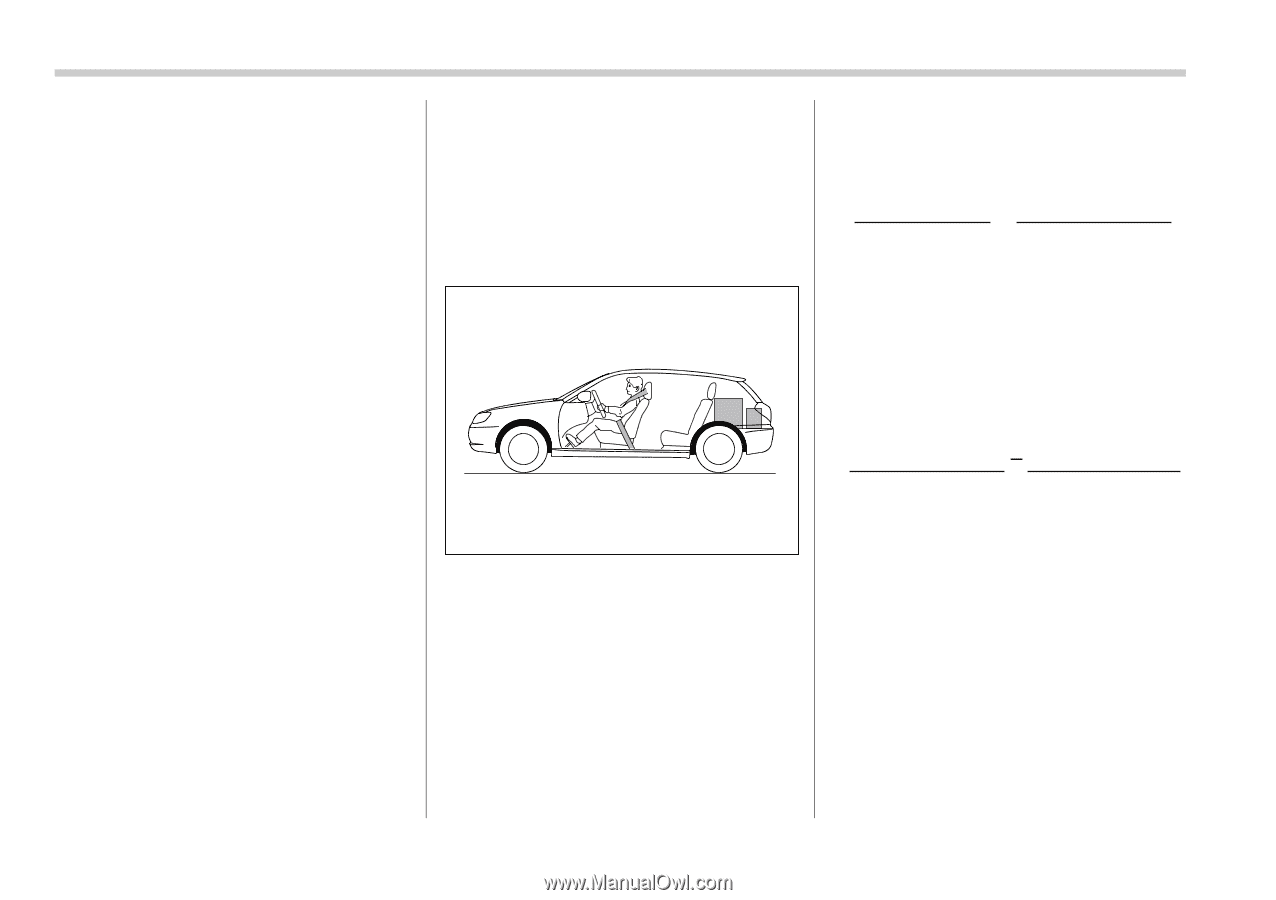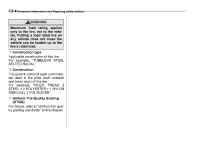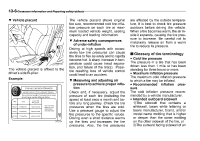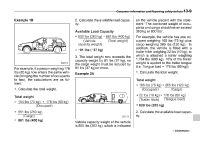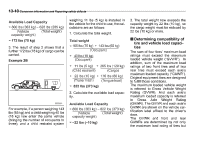2006 Subaru Outback Owner's Manual - Page 407
2006 Subaru Outback Manual
Page 407 highlights
13-8 Consumer information and Reporting safety defects Vehicle load limit - how to determine The load capacity of your vehicle is determined by weight, not by available cargo space. The load limit of your vehicle is shown on the vehicle placard attached to the driver's side B-pillar. Locate the statement "The combined weight of occupants and cargo should never exceed XXX kg or XXX lbs" on your vehicle's placard. The vehicle placard also shows seating capacity of your vehicle. The total load capacity includes the total weight of driver and all passengers and their belongings, any cargo, any optional equipment such as a trailer hitch, roof rack or bike carrier, etc., and the tongue load of a trailer. Therefore cargo capacity can be calculated by the following method. Cargo capacity = Load limit - (total weight of occupants + total weight of optional equipment + tongue load of a trailer (if applicable)) For towing capacity information and weight limits, refer to "Trailer towing" section in chapter 8. Calculating total and load capacities varying seating configurations Calculate the available load capacity as shown in the following examples: Example 1A 1. Calculate the total weight. Total weight = 154 lbs (70 kg) + 551 lbs (250 kg) (Occupant) (Cargo) = 705 lbs (320 kg) 2. Calculate the available load capacity by subtracting the total weight from the vehicle capacity weight of 800 lbs (363 kg). Available Load Capacity = 800 lbs (363 kg) 705 lbs (320 kg) (Vehicle (Total weight) capacity weight) D00111 = 95 lbs (43 kg) 3. The result of step 2 shows that a further 95 lbs (43 kg) of cargo can be carried. Vehicle capacity weight of the vehicle is 800 lbs (363 kg), which is indicated on the vehicle placard with the statement "The combined weight of occupants and cargo should never exceed 363 kg or 800 lbs". For example, if the vehicle has one occupant weighing 154 lbs (70 kg) plus cargo weighing 551 lbs (250 kg).
